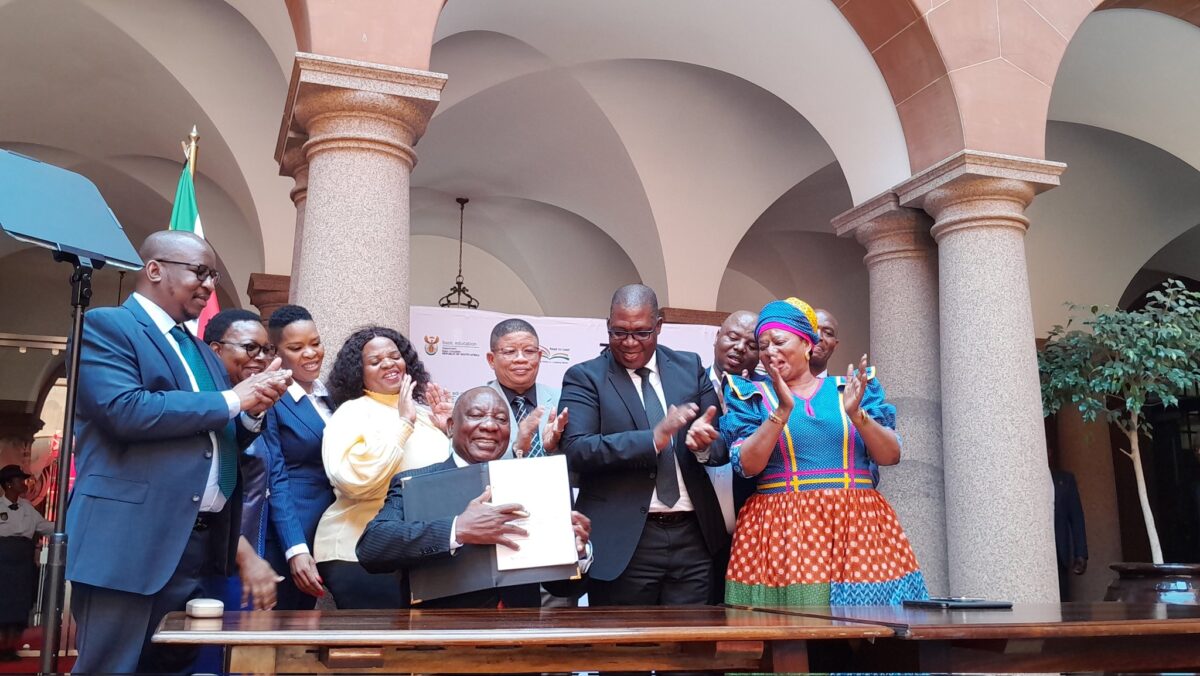
Ramaphosa dismisses concerns over Gwarube’s absence at BELA Bill signing
Ramaphosa responded to concerns regarding Basic Education Minister Siviwe Gwarube’s absence at the signing of the BELA Bill on Friday.

President Cyril Ramaphosa responded to concerns about Basic Education Minister Siviwe Gwarube’s absence during the signing of the Basic Education Laws Amendment (BELA) Bill on Friday.
Gwarube boycotted the event, citing her opposition to the bill in its current form. However, Ramaphosa brushed off her absence, emphasising her commitment to implementing the law remains intact.
Gwarube’s absence is not a major concern
Despite Gwarube’s non-attendance, Ramaphosa stressed that the minister’s disagreement with parts of the bill did not overshadow her overall dedication to her role.
“Her non-attendance for me is an issue, but it is a minor issue compared to her commitment to implement the law that I signed today,” Ramaphosa said. He made it clear that Gwarube reassured him of her commitment, stating, “The minister has been very clear, and she says, ‘President, you are my boss, I will execute decisions of government.’ That is exactly her mandate.”
Ramaphosa used the moment to reaffirm his focus on public service rather than political disputes, saying, “The interests of South Africans are the glue that holds us together in the government of national unity.”
BELA Bill brings major education reforms
The signing of the BELA Bill marks a key step toward reforming South Africa’s education system, particularly in areas such as school admissions and language policies. Ramaphosa highlighted that, while progress has been made in expanding access to education since democracy, challenges like unequal resources and exclusionary policies persist.
“Despite the progress, there are still cases of learners being denied admission to schools because of their language policies,” Ramaphosa stated. The BELA Bill aims to level the playing field by standardising admission procedures and ensuring inclusivity in all schools, especially for vulnerable learners.
The bill also mandates compulsory Grade R and strengthens oversight of homeschooling, focusing on inclusivity and respect for cultural and religious diversity.
Delay in implementing certain clauses
In light of the concerns raised by Gwarube and others, Ramaphosa decided to delay the implementation of clauses 4 and 5, which deal with school admissions and language policies, by three months.
“In the spirit of cooperation and meaningful engagement, I have decided to delay the implementation date for clauses 4 and 5 of the Bill,” he announced.
